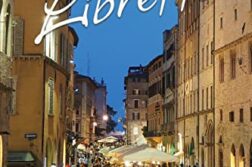OPERA QUEENS are not in short supply, but gay men who love Lieder seem to be few and far between. The German word Lieder is the plural of Lied, which means simply “song.” But it has acquired a particular association, especially among English speakers, with the Romantic German art song. Mozart and Beethoven may be considered the earliest composers of Lieder, though the genre only came into its own with Franz Schubert, who was followed by Robert Schumann, Johannes Brahms, Hugo Wolf, Richard Strauss, and others.
The words in Lieder are as important as the music, and the piano contribution is as important as the vocal. The best Lieder represent the union of a great poet and a great composer. Ideally, everything comes together—the story being narrated, the sound and imagery of the poetry, the vocal line, the character conveyed by the singer, and the piano accompaniment. The best Lieder singers, while not stiff, use gestures very sparingly if at all. The words and music are sufficient. A Lieder recital is intimate, best heard in a small hall or in the home. This is very different from opera, where action and scenery are part of the experience. To fully appreciate an opera, one needs to see it in an opera house, in a DVD movie (most of which are badly directed and photographed), or at least in one’s imagination.




